Q
Can I sleep in a Jimny?
Okay, so you can sleep in a Suzuki Jimny, but there are some things to keep in mind to make it comfy and safe. The Jimny’s a compact SUV, right? So the rear seats fold down to free up some space, but let’s be real – it’s not a stretch limo. Adults might find themselves a bit curled up. Pro tip: bring a sleeping pad or air mattress to up the comfort level big time.
Now, Malaysia’s hot and humid, so ventilation is key if you’re crashing inside overnight. Crack a window slightly or fire up a portable fan – AC’s a no-go here, folks, unless you want to risk carbon monoxide buildup. If camping’s your thing, the Jimny’s 4WD and decent ground clearance make it solid for light off-roading, but always pick a safe spot to set up camp.
Heads up about battery drain, too. Sleeping in there for hours can sap the juice, so start the engine periodically to top it up. The Jimny’s tiny and nimble for sure, but let’s not kid ourselves – it’s not a purpose-built camper. If you’re regularly sleeping in your ride, maybe look into a roof tent or a rear storage extension to give yourself more room to stretch out.
Special Disclaimer: This content is published by users and does not represent the views or position of PCauto.
Related Q&A
Q
Is Jimny good for city driving?
As a compact SUV, the Suzuki Jimny holds its own pretty well for city driving in Malaysia. That 3.7-meter short body is a total lifesaver for squeezing through tight lanes and nailing those tricky parking spots in congested cities like KL. The 1.5L naturally aspirated engine paired with the 4AT gearbox isn't going to win any drag races, but it's got enough low-end torque to handle stop-and-go city traffic without breaking a sweat – though you will notice it drinks a tiny bit more fuel than your average urban SUV.
Let's talk ride quality: the Jimny's body-on-frame construction and solid axle suspension can feel a bit jiggly on smooth tarmac, but that generous ground clearance? It laughs at Malaysia's potholed roads and those annoying temporary roadblocks you find everywhere. A heads-up though – the back seat is pretty snug. It's perfect for 1-2 people commuting daily, but if you're regularly ferrying around a full crew, comfort might take a hit.
Here's where the Jimny really shines, though – off-road capability, which is a huge plus for adventure-loving owners. Weekends up to places like Cameron Highlands or Fraser's Hill? This little rig handles those mountain roads like a champ. Over in the Malaysian market, Jimnys hold their value surprisingly well, and servicing is generally straightforward – just be prepared that original parts can be a touch pricier than your run-of-the-mill city cars.
Q
Does Jimny have resale value?
In the Malaysian market, the Suzuki Jimny actually maintains a relatively high resale value as a used car, which is primarily attributed to its unique design, solid off - road capabilities, and relatively limited supply. As a compact, hardcore off - roader, it has no direct local competitors. Plus, with that classic boxy shape and impressive go - anywhere ability, it has a large fan base among off - road enthusiasts and buyers looking for something with personality—so demand for used ones stays steady. The high prices of new cars and long waiting periods also indirectly support the resale values of second - hand vehicles.
Based on actual market data, a 3 - year - old Jimny typically retains about 65% to 75% of its original price, which outperforms city SUVs in the same price bracket. It's worth noting, however, that the actual resale value is influenced by the vehicle's condition, mileage, and any modifications made. Unmodified models with complete factory service records are undoubtedly more in demand in the used car market.
When Malaysian consumers purchase a niche vehicle like this, in addition to considering the resale value, they should also take into account their actual usage scenarios. The on - road comfort and interior space of the Jimny cannot compare with those of mainstream SUVs, however, its off - road capability is second to none among niche vehicles. This unique positioning is precisely what enables it to maintain its value so effectively.
Q
Where is Jimny built?
The Suzuki Jimny is currently rolling off the production lines at Suzuki's Hamamatsu plant in Japan, and this classic compact off-roader has built a global fanbase – Malaysia included – thanks to its tough-as-nails body-on-frame construction and impressive go-anywhere capabilities. Underpinning that rugged character is a ladder frame chassis paired with a part-time 4WD system, making it a solid fit for Malaysia's diverse landscapes. Whether you're navigating city streets or tackling weekend adventures, the Jimny handles it all with ease.
What really stands out, though, is how this little SUV punches above its weight when the going gets rough. Its generous ground clearance and short wheelbase translate to exceptional off-road articulation, which is a big reason it's a hit for tackling Malaysia's rainforests and rural tracks. For Malaysian buyers, the Jimny's appeal goes beyond just off-road prowess. Its relatively affordable price tag and low running costs are major draws, and when you factor in Suzuki's well-established after-sales network locally, it becomes the perfect pick for folks who want genuine off-road fun without breaking the bank. And in recent years, as Malaysian buyers have shown a growing appetite for more individualistic rides, the Jimny's retro-cool looks and massive potential for customization have only added to its popularity, especially among younger drivers.
Q
Are Jimny Motors reliable?
The Suzuki Jimny has built a solid fan base among Malaysian drivers, thanks to its tough, no-nonsense design and impressive off-road capabilities – it’s especially well-suited for the country’s varied terrain. This little SUV packs a 1.5L naturally aspirated engine that delivers smooth power while keeping fuel costs in check, and with relatively low maintenance expenses, it’s a smart pick for budget-conscious buyers. When it comes to reliability, the Jimny has a proven track record; its chassis and mechanicals have stood the test of time with minimal issues. That said, its lightweight body does mean some wind noise at highway speeds, and the interior leans more toward practicality than luxury – though for folks who prioritize function over frills, that’s hardly a dealbreaker. The Jimny also holds its value well in Malaysia’s used car market, which speaks volumes about its dependability. If you’re frequently tackling rural roads or light off-roading, the Jimny is definitely worth a look – just remember to keep up with regular servicing to keep it running strong for years to come.
Q
Why is Jimny famous?
The Jimny is renowned for its unique rugged off - road design, reliable performance, and compact, nimble body – traits that make it stand out in Malaysia's varied terrain. As a Suzuki classic, it features a body - on - frame construction, a part - time four - wheel - drive system, and ample ground clearance, enabling it to handle mud, gravel, and even light climbing trails with ease. No wonder it's a hit among off - road enthusiasts and outdoor adventurers.
Then there's its compact size, which is perfect for Malaysia's tight city streets and rural backroads. Coupled with decent fuel efficiency, it achieves a good balance between daily commuting and weekend adventures. In recent years, the Jimny's retro boxy looks have also attracted the attention of fashion - conscious individuals, making it a popular choice for customization and modifications.
Furthermore, its strong resale value in the used car market – a testament to its solid reputation and durability. For Malaysian buyers, the Jimny isn't just a practical off - roader; it's a lifestyle symbol, ideal for drivers who crave freedom and adventure.
Q
Why was Jimny discontinued?
So, why did the Jimny get the axe in Malaysia? Let's break it down. The main culprit is the ever-tightening global emissions regulations, especially the Euro 6 standards. The third-gen Jimny (JB74) with its 1.5L engine just couldn't keep up with the latest green demands, and Suzuki hasn't rolled out a compliant upgrade specifically for Southeast Asia yet.
On top of that, the Malaysian government's recent tweaks to import duties and certification processes have jacked up the cost of bringing in small off-roaders, chipping away at the Jimny's competitiveness. Don't get me wrong, the Jimny's a total legend among off-road enthusiasts – that short wheelbase and body-on-frame setup are pure off-road DNA. But let's be real, those same traits make it a bit of a handful for daily city driving and not the most fuel-sipper out there.
Now, the fourth-gen Jimny is out in some markets with the necessary updates to meet new rules. But here's the thing: Malaysians are pretty price-sensitive, and the SUV segment is fiercely competitive. So Suzuki's probably hitting pause on bringing it in for now.
If you're a Malaysian off-road fan craving something small but capable, don't despair. Keep an eye on alternatives like the new Toyota Land Cruiser or Mitsubishi Pajero Sport. They've both got the off-road chops and are fully compliant with local regulations.
Q
Can you daily drive a Jimny?
The Suzuki Jimny is a super popular compact SUV, especially here in Malaysia, where its toughness and off-road chops are widely praised. But whether it’s a good fit as a daily driver really comes down to your personal needs.
On the plus side, the Jimny’s tiny footprint makes it a breeze to zip through tight city streets and squeeze into those impossible parking spots. And let’s not forget that rugged chassis and generous ground clearance—perfect for tackling some of Malaysia’s less-than-perfect road conditions when you venture out of town.
That said, there are trade-offs. The interior space is definitely on the snug side, especially in the back seat and boot. If you’re a family driver or someone who regularly hauls stuff, you might find it a bit limiting. Also, the suspension is on the firm side, and wind noise can get noticeable on longer highway stretches, which might take a toll on comfort.
So, if your daily grind is mostly city commuting with the occasional weekend escape, the Jimny could be a solid pick. But if you’re often ferrying passengers or lugging bulky items, you might want to check out something with more cargo room.
Malaysia’s weather can be pretty unpredictable too, and the Jimny’s 4WD system is a big plus when the rains hit or roads get muddy, giving you that extra stability.
All in all, the Jimny shines for folks who love its unique, boxy style and appreciate its off-road potential. But if comfort and practicality are your top priorities? Definitely take it for a test drive before making up your mind.
Q
Is Jimny a safety rating?
The Suzuki Jimny's safety ratings vary depending on the market and testing authority. Take ASEAN NCAP as an example – the 2020-tested Jimny scored a 3-star rating, largely constrained by its compact body structure and relatively basic safety kit. That said, it still comes standard with key essentials like dual airbags, ABS, and ESP. For Malaysian buyers, the Jimny's biggest draws are its off-road capability and legendary durability. However, if high-speed crash protection is a top priority, it's wise to check out more localized test data.
Road safety in Malaysia really comes down to how you plan to use the vehicle – city commuting and off-roading have very different requirements. The Jimny's stiff body design holds up reasonably well in low-speed impacts, but drivers should definitely factor their own driving habits into the decision. Also, keep in mind JPJ's regulations on vehicle modifications, especially when upgrading for off-roading – you'll want to make sure those mods don't compromise the original safety structure.
Other models in the same price bracket, like the Perodua Ativa, might offer more comprehensive active and passive safety features. Before making a purchase, it's recommended to compare the MIROS safety reports of multiple models.
Q
Are Jimny good on fuel?
The Suzuki Jimny, as a compact off - roader, achieves a relatively good balance when it comes to fuel economy, making it well - suited for Malaysia's mix of city streets and suburban roads. According to official data, the latest Jimny packs a 1.5L naturally aspirated engine, mated to either a 4 - speed auto or 5 - speed manual gearbox. The combined fuel consumption is approximately 6 - 7L/100km, although this figure may vary slightly depending on driving habits and road conditions. This is actually above the average level among off - roaders of its class.
Certainly, its boxy shape and 4WD system increase wind resistance and add some weight, however, the lightweight body and small - displacement engine effectively offset some of the increased fuel consumption. Compared with the common city SUVs seen everywhere in Malaysia, the Jimny consumes slightly more fuel. However, when considering its excellent off - road capabilities – things like that ladder frame chassis and three - link suspension – plus its unique personality, this small difference is entirely acceptable.
If you aim to further improve its fuel efficiency, here's a tip: maintain the proper tire pressure, avoid excessive modifications that add significant weight, and use the 4WD mode wisely – switch to 2WD on paved roads. However, it's worth noting that when driving on Malaysia's hilly terrain or during the rainy season with challenging road conditions, the Jimny's off - road prowess really shines. In such situations, a slight increase in fuel consumption is well worth it for the exceptional off - road capability it provides, offering excellent value for money.
Q
Can Jimny be a family car?
The Suzuki Jimny, that boxy little off-roader, has built a solid fan base among outdoor enthusiasts thanks to its rugged looks and capable 4x4 system. But if you're eyeing it as a family hauler in Malaysia, there are pros and cons to weigh. With a 2345mm wheelbase and that snug rear seat, it works fine for small families on short trips. Cramming four adults in for long hauls, though? Things are gonna get pretty tight back there.
On the flip side, its generous ground clearance and ladder-frame chassis mean it can handle those rough-and-tumble rural roads you sometimes find around Malaysia. The 1.5L naturally aspirated engine paired with the 4-speed auto? Fuel economy is just so-so—official figures say around 6.4L/100km—but maintenance costs are low, which is easy on the family budget. It's worth mentioning that the 2023 model comes standard with safety features like autonomous emergency braking, making it more city-friendly than many of its off-road-focused rivals.
If your family has more than four members or you regularly take long road trips, you might be better off with a more spacious family SUV. But if your crew is smaller and you occasionally crave some light off-roading action, the Jimny's unique tough-guy charm and modification potential still make it a compelling pick. And given Malaysia's sweltering climate, springing for the factory air-conditioning upgrade kit is a smart move to keep those in the back seat from melting.
Latest Q&A
Q
What kind of oil does 2018 Passat use?
For the 2018 Volkswagen Passat in Malaysia, the recommended oil specs typically call for synthetic oils that meet VW 502 00 or VW 504 00 standards, with viscosity grades of 5W-30 or 5W-40 being the go-to choices. Your final pick should really depend on your actual driving conditions and habits though – here in Malaysia's hot climate, for example, 5W-40 might be the better bet thanks to its stronger high-temperature protection.
Sticking to regular oil changes is huge for keeping your engine running strong long-term. As a general rule, aim to change it every 10,000 kilometers or 12 months, whichever comes first. Also, when you're picking out oil, always double-check that it has international certifications like API SN or ACEA A3/B4 – that's your guarantee of reliable quality.
If your Passat has a diesel engine or is a high-performance variant, it might need a specific oil type, so your best move is to check the owner's manual or have a chat with an authorized service center. It's also handy to know what those oil numbers mean – "5W" tells you about cold-weather flow, while "40" refers to hot-temperature thickness. A little knowledge here goes a long way in helping you make the smartest choice for your car.
Q
Does a 2018 Volkswagen Passat have a turbo?
The 2018 Volkswagen Passat in Malaysia does come with a turbocharged engine, specifically a 1.8-liter TSI turbocharged petrol unit. This engine pushes out 180 horsepower and 250 Nm of torque, and it's a solid combo of turbo tech and direct injection that delivers great power while still being kind on fuel – perfect for both city commuting and those longer highway drives we Malaysians love. Turbocharging works by compressing the intake air, which boosts engine efficiency and power, so you get plenty of torque even at low revs, making acceleration feel smooth and effortless.
On top of that, the 2018 Passat also gets VW's DSG dual-clutch gearbox, which really sharpens up the shifts and makes the whole driving experience that much more engaging. For Malaysian buyers, a turbo engine isn't just about daily driving needs; it also gives you that extra oomph for confident overtaking on the highway. And let's not forget, Volkswagen's reputation for reliability and their widespread after-sales network here mean owning one is pretty hassle-free.
If turbo tech has caught your interest, it's worth checking out turbo models from other brands like Toyota or Honda too – each has their own engineering twists. But when it comes to balancing power and fuel efficiency, VW's TSI engines really stand out from the pack.
Q
Are there any recalls on a 2018 VW Passat?
For the record, the 2018 Volkswagen Passat was subject to safety-related recalls in certain markets. In North America, for instance, a recall was issued due to a potential fault in the fuel pump control unit that could lead to stalling. As for the Malaysian market, it's best to refer to official Volkswagen announcements there. We recommend owners check via the recall inquiry page on Volkswagen Malaysia's website by entering their Vehicle Identification Number (VIN) or contact an authorized service center directly, as recall situations can vary by region based on local regulations and vehicle specifications.
Staying on top of recall information is a key part of vehicle maintenance, especially for updates involving critical components like airbags, fuel systems, or electronic stability programs. Even if your Passat isn't part of a recall, sticking to the manufacturer's maintenance schedule is crucial to keep it running at its best. For more details on common upkeep points specific to the Passat—think DSG transmission care or turbocharged engine maintenance tips—reaching out to local Volkswagen technicians is the way to go for personalized advice.
Q
What is the fuel consumption of the 2018 Volkswagen Passat?
The 2018 Volkswagen Passat's fuel economy in the Malaysian market varies depending on the powertrain. The 1.8-liter TSI turbocharged engine variant delivers a combined fuel consumption of around 6.5 liters per 100 kilometers, while the 2.0-liter TSI model is slightly thirstier at approximately 7.2 liters per 100 kilometers. Real-world figures, of course, can fluctuate based on driving habits, road conditions, and maintenance upkeep.
Riding on Volkswagen Group's proven MQB platform and paired with a DSG dual-clutch transmission, this model strikes a nice balance between power delivery and fuel efficiency – ideal for both city commutes and highway stretches across Malaysia. It's worth highlighting how turbocharging technology effectively boosts performance from smaller-displacement engines while keeping fuel consumption relatively low, a trend we've seen increasingly adopted in mid-size sedans here in the local market.
To keep your Passat running at its most efficient, regular maintenance is key. Make sure to replace the air filter and spark plugs as scheduled, and always use engine oil that meets the manufacturer's specifications. These simple steps go a long way in preserving optimal fuel economy over time.
If you're in the market for a used Passat, do yourself a favor and check the complete service history through official channels. It's the best way to ensure the vehicle still performs as well as it did when it left the factory.
Q
Why is my 2018 Passat not starting?
There are a few common reasons why your 2018 Passat might be refusing to start. First up, battery issues. Malaysia's hot and humid climate can really take a toll on battery life, so it's worth checking if the voltage has dropped below 12.4 volts or if the terminals are looking corroded.
Next, a faulty starter motor or alternator could be the culprit – both can leave you short on electrical power. Don't rule out fuel system problems either, like a busted fuel pump or a clogged fuel filter. These tend to happen more often if you've been using low-quality petrol regularly.
Then there's the ignition system; worn spark plugs or a dodgy ignition coil can definitely make starting a hassle. If your Passat has a smart key, don't forget to check if the key fob battery is dead, which might stop the car from recognizing it.
If any warning lights are flashing on the dashboard – especially the check engine light – hook up an OBD scanner to read the trouble codes as soon as you can. For regular maintenance, swap out the battery every 2-3 years, stick to the recommended fuel grade, and replace the spark plugs around every 60,000 kilometers. These simple steps can go a long way in preventing starting headaches. If you've checked all this and still can't get it going, best to reach out to an authorized service center for a professional diagnosis.
View MoreRelated News
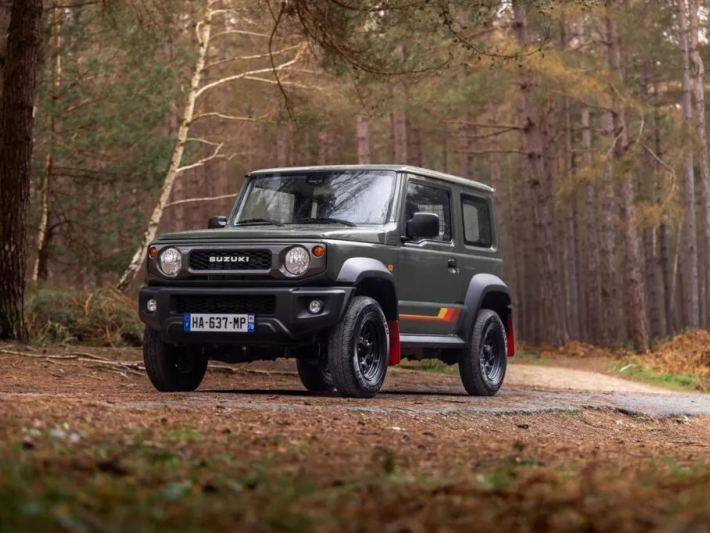
Only 55! Limited-Edition Jimny Coming to France
MichaelJun 20, 2025
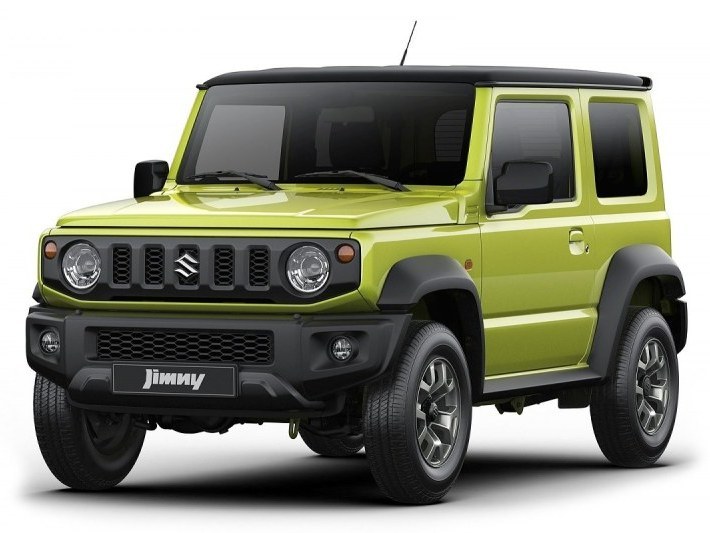
Suzuki Jimny's Trusted 4WD System: Unleash Off-Road Thrills
Kevin WongMay 13, 2025
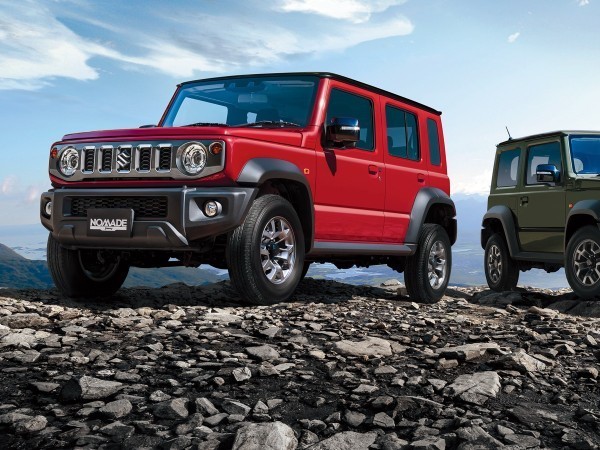
Jimny Nomade Japan released, over 50,000 orders in 4 days, consumers need to wait for 3.5 years
MichaelFeb 5, 2025

Suzuki Jimny Arctic Launch: Limited Time Offer to Save 7000 Ringgit!
Kevin WongNov 18, 2024
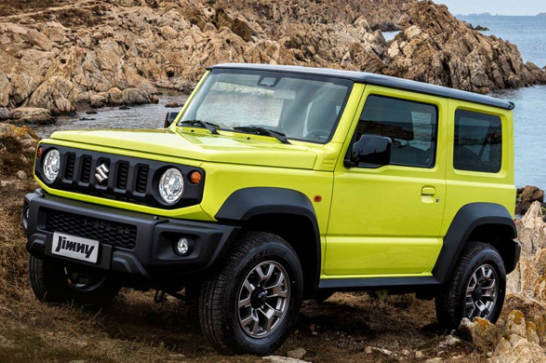
Getting More Expensive, 2024 Suzuki Jimny Starts at RM 174,180. Is it a Financial Wizard?
LienApr 18, 2024
View More












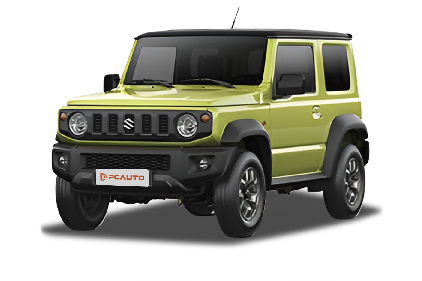





Pros
Cons